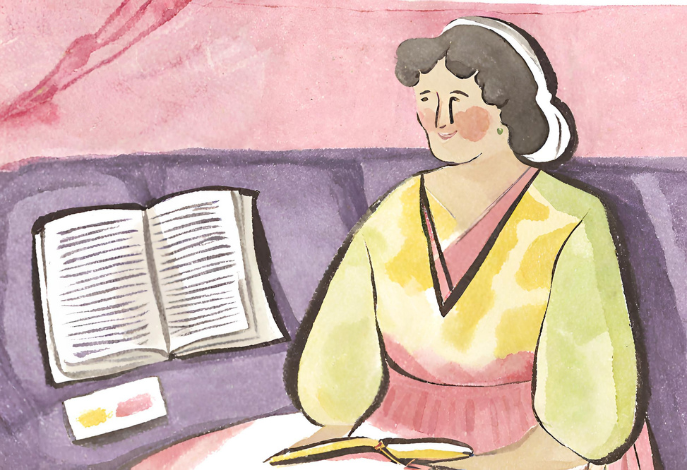The “Virtuous Wife” of Proverbs 31 Is a God-Fearing Capitalist, Part 1

Many passages of Scripture have underlying themes or truths. These themes and the principles tied to them are not the primary messages of those passages of Scripture, but they typically are important and are just as valid as primary principles. Secondary principles also usually have very important points of application for us in daily living.
Consider these 12 parables of Jesus. Underlying Jesus’ main points about the kingdom of God are economic themes carrying ideas about personal responsibility. Many offer principles of broad application for an employee about his accountability to his employer. In all of these parables, the free enterprise economic system is assumed. Capitalism’s operative guidelines serve as the backdrop for each spiritual story and the main lessons about God’s kingdom that naturally arise.

Something similar also can be said about Proverbs 31:10–31. This passage is not primarily about the free enterprise economic system; but rather about “a virtuous wife” (v. 10). Nevertheless, the wife whose “worth is far above rubies” (v. 10) and who is married to a man with a “heart [that] safely trusts her” (v. 11) is a woman who freely, enthusiastically, and wisely takes advantage of all that the free market system has to offer. In this post and in part 2, we will explore the free market’s implications of Proverbs 31.
The wife whose “worth is far above rubies” (v. 10) and who is married to a man with a “heart [that] safely trusts her” (v. 11) is a woman who freely, enthusiastically, and wisely takes advantage of all that the free market system has to offer.
Good Things Come to (and from) Those Who Work
Why does “[t]he heart of her husband safely” rely on his wife? (See v. 11). Because, as a result of her industry,
11 he will have no lack of gain.
12 She does him good and not evil
All the days of her life.
Gain, therefore — the type of gain that the virtuous wife brings in — is good and not evil. We need to carefully consider this point, because in today’s anti-capitalist society, many people consider all gain to be inherently evil. They are wrong. Proverbs 31 tells us about a type of gain that is inherently good — and healthy, and wholesome, and to be celebrated and praised. The gain of which I speak is gain attained honestly through hard work and wise management of resources.
13 She seeks wool and flax,
And willingly works with her hands.
14 She is like the merchant ships,
She brings her food from afar.
15 She also rises while it is yet night,
And provides food for her household,
And a portion for her maidservants.
16 She considers a field and buys it;
From her profits she plants a vineyard.
17 She girds herself with strength,
And strengthens her arms.
18 She perceives that her merchandise is good,
And her lamp does not go out by night.
19 She stretches out her hands to the distaff,
And her hand holds the spindle.
This woman throws herself into productive and profitable work! She directly engages in industry herself, working with “wool and flax.” The wool and flax, or linen, goods she produces give her economic leverage to bring “food” to her family “from afar,” in a manner reminiscent of “the merchant ships.” At night she may rest some (everyone must), but she still has a reputation for working after dark. She “provides food for her household” and “for her maidservants,” those in her employ.
Prudent Investments from Solid Earnings
Investing wisely from her earnings, she “considers a field…buys it…[and] plants a vineyard.” This noble lady has a diversified portfolio; she has not placed all of her financial eggs in one basket.

Consider verses 17–18 in the Christian Standard Bible:
17 She draws on her strength
and reveals that her arms are strong.
18 She sees that her profits are good,
and her lamp never goes out at night.
Why are this woman’s “profits…good”? Because she consistently produces quality products at a fair price! People want to buy them, and they do! Later, verses 24 and 25 allude once again to the quality of the goods she produces. Her wares have resulted from diligent work performed by a woman of “honor” and integrity.

As we implied when we talked about her buying a vineyard, this wise woman has invested in projects beyond her area of primary expertise. Yet verse 19 lets us know that she knows what she does best and chooses to continue in that line of work. Here is verse 19 in the Christian Standard Bible:
19 She extends her hands to the spinning staff,
and her hands hold the spindle.
This, as we will see in part 2, gives her confidence and a sense of security about the future — and rightly so.
Charity
Verse 20 tells us of this woman’s compassion for those less fortunate than she:
20 She extends her hand to the poor,
Yes, she reaches out her hands to the needy.
This is how the poor are to be helped, according to Scripture. Through charity! Through gifts given voluntarily and freely, contributions that are not forced; through compassionate giving that directly provides relief of needs! The New Testament also upholds this ideal (see Eph. 4:28). To her eternal credit, this woman does not wait for the government to come to her, tax her profits heavily, and redistribute those resources to people in need or deemed to be in need! No! She reaches out to them herself; or, consistent with what Scripture tells us about her generosity, she might partner with others who are working directly to meet the needs of the poor.
To her eternal credit, this woman does not wait for the government to come to her, tax her profits heavily, and redistribute those resources to people in need or deemed to be in need! No! She reaches out to them herself.
To Be Continued…
Next time, we will examine the rest of the chapter and explore even more ways this woman both uses the free enterprise system to her own and her family’s advantage, and through it, blesses individuals both in and beyond her own household.
Stay tuned!
Part 2 is available here.




